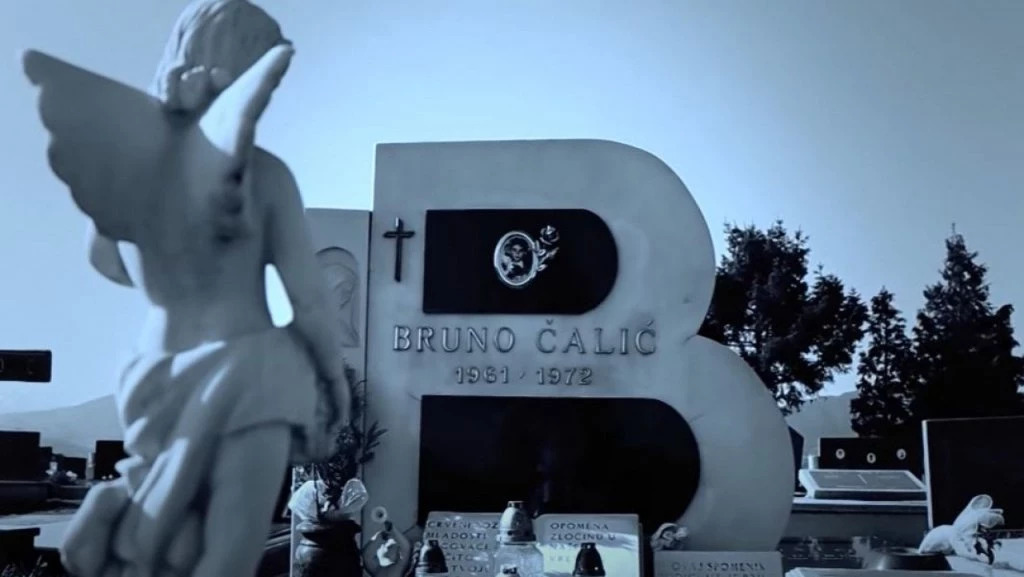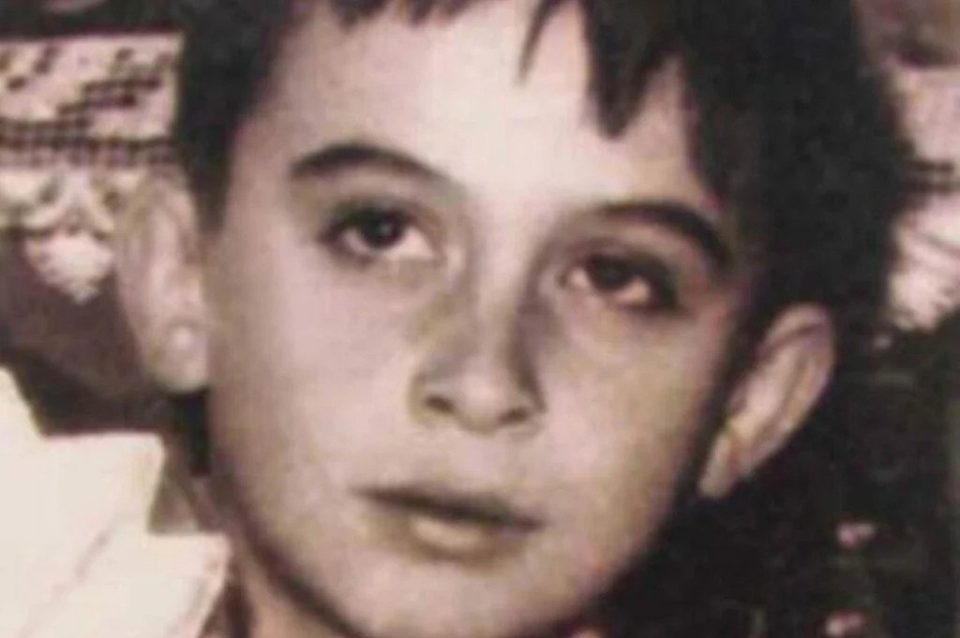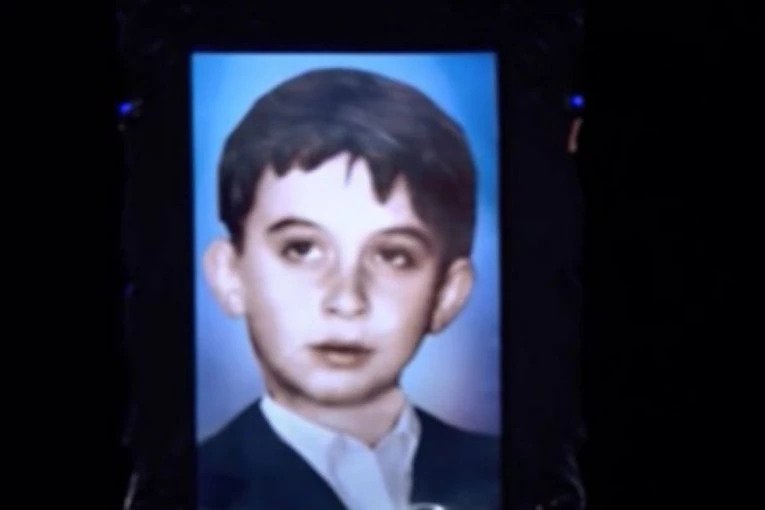
In the last 50 years, there have been no death penalty verdicts or known blood feuds in Bosnia and Herzegovina, despite the country’s violent history of atrocities and genocide.
Ajdin Huseinspahić, a university professor in the Department of State and Legal History at Zenica Law School, affirms that survivors and victims of crimes rarely seek revenge or resort to violence. As a society, we must focus on the essence of our mission in the educational process and at every step, so that we do not become slaves to fulfilling norms, quotas, and completing tasks without achieving meaningful results.
The most recent retaliatory murder in Bosnia and Herzegovina occurred in 1973 as a result of a blood feud that claimed the life of 11-year-old Bruno Čalić from Zenica. Bruno’s murder was an act of revenge that was arranged by a woman named Višnja Pavlović, whose son Milenko was killed in a traffic accident involving Bruno’s father, Stipo. After Stipo was acquitted for this crime on account of unfortunate circumstances, Višnja decided to seek revenge. With half a million dinars and a gun she obtained from her husband, she hired a man named Dragomir Bajčeta to kill Bruno.
At the time of his murder, Bruno was attending elementary school the former Sestre Ditrih Elementary School, since renamed the Miroslav Krleža Elementary School, located on Travnička Street in Zenica. After Bruno finished his classes, he was approached by Bajčeta, who introduced himself as a friend of Bruno’s father. Bajčeta took Bruno to a cemetery, where he stabbed the boy nine times with a knife, resulting in Bruno’s death.

According to some sources, Višnja and Bajčeta managed to escape to Montenegro, while other accounts claim that after the city was sealed off, they were arrested by police on a train near Vranduk and then imprisoned in Sarajevo. Višnja and Bajčeta were both sentenced to death, while Višnja’s husband, Rajko, was sentenced to 20 years in prison for his involvement in the crime.
After their only son was killed, Stipo Čalić passed away in 1991, and Anka Čalić, Bruno’s mother, in 2020. According to media reports, Anka had contemplated suicide but refrained from going through with this act for religious reasons. Instead, she devoted herself to her faith, singing in the church choir and praying every day for her son Bruno, whom vengeance had cost his life.
Deranged Justice
Professor Huseinspahić says that revenge killings and the death penalty can both be viewed as instruments of justice. He explained that revenge killing has developed from legal and political systems since ancient times as a means of establishing deranged justice.
“It is known that throughout history, the system of composition, the system of retaliation (an eye for an eye, a tooth for a tooth), had its place in legal systems such as the Roman, Sharia, and socialist system, in which the murder of Bruno Čalić occurred and death sentences were given to the perpetrators,” said Huseinspahić. He emphasized that large systems in Eastern countries, like the Chinese legal system, also have the death penalty.
Professor Huseinspahić argues that revenge killing can be defined by criminal law, but even if it isn’t, it still exists within the people. He mentioned that at one point, there was a separation between the concepts of the death penalty and blood revenge. When asked why the death penalty is increasingly being imposed less worldwide, he responded that it could be interpreted as a sociological phenomenon. He questioned the significance of blood revenge and how much satisfaction it truly brings.
“We should differentiate countries and legal-political systems that impose the death penalty for corruption, bribery, abuse of power… In those cases, the death penalty is quite a strict sentence. On the other hand, we have countries with legal systems like our previous socialist system, where the death penalty was associated with a disturbed system of values or the unjustified taking of a life due to the internal motives of the killer,” asserted Huseinspahić.
According to the professor, criminal law theorists are more inclined to advocate for the harshest sanction, the death penalty, in cases of intentional murder rather than in cases of property offenses. However, this also depends on the level of societal development.
The death penalty in Bosnia and Herzegovina was abolished in the criminal legislation of the Federation of Bosnia and Herzegovina in the 2000s and in the Republika Srpska in 2019.
Stringent Sanctions
Huseinspahić added that there is a room for debate regarding the fairness of the death penalty, in cases where someone commits a premeditated act of murder, regardless of their motives or impulses, in a situation where they do not need to defend their own life or the life of others. Instead, these acts stem from an obsession or an attempt to establish their own subjective notion of justice in the world.
“We can question whether the lives of those they have killed are less valuable than their own life and who has the authority to take someone’s life. Imposing the death penalty on a killer who has been determined to have killed, or admitted to killing, out of obsession might deter other potential killers from committing such crimes or prevent future murders. I believe that the more stringent the sanction, the more it should scare and deter individuals from committing criminal acts,” the professor said.
He goes on to explain that people individuals take justice into their own hands when they feel that the legal system is unjust or when there are inadequate mechanisms within the legal system to meet their subjective standards of justice. The professor emphasizes that this is very bad and should always be condemned. However, it should also serve as a signal, at least to those who engage in researching specific issues such as the death penalty and revenge killings, to consider the character of the person who committed such a crime.

“Going into the reform process, we need to carefully listen to society, listen to its individuals, and see if society has matured in the legal sense for criminal sanctions and the abolition of the death penalty. On the other hand, we need to see if society is mature enough to preserve the death penalty within the system of criminal sanctions,” said the professor. He added that when we engage in reforms without proper analysis and when we adopt practices from other systems and act by dictate, we create dissatisfaction.
The essence, the professor notes, is for people to accept the norms and the reform process.
When we compare the punishment for the murder of Bruno Čalić with the murders of young men near Trnovo committed by the Scorpions or the executions during the Srebrenica genocide, the question arises whether the criminal-legal mechanism of punishment was justly established.
Huseinspahić highlights the lack of retaliation and blood feuds, even though many of the genocide’s perpetrators are still alive and their identities known to survivors and communities. “The survivors aren’t going after them, let alone retaliating for such heinous crimes,” he stated.
Cases like the recent murder of children and a security guard at a school in Belgrade indicate, according to the professor, that perhaps we have not matured enough as a society to devote ourselves to the essence of our mission. In the educational process, and at every step, we are enslaved to formalities, to meeting norms and quotas, to simply getting the job done rather than achieving the end result, which is very significant.
“Abdulah Sidran wrote that sick societies cannot give birth to healthy individuals. It is crucial to understand that. Society itself needs to be healed. Role models for children must truly be people who are productive and beneficial to society. They cannot be people who are on the margins of social life,” the professor said.
He added that if we don’t return to the primal essence, understand our mission, and comprehend the purpose of our lives in this world, then we won’t reach the true essence, which is striving to live a healthy, normal life in a time when the abnormal is becoming a trend.






